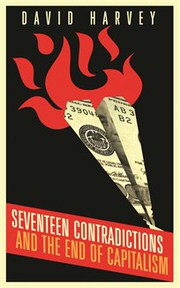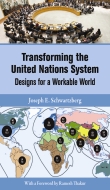We took our
son, Noah and his partner, Andy, to dinner last night at a new Thai restaurant
in Detroit, Katoi.
The menu was
unique to my culinary experience. The mix of tastes and combinations of
ingredients was so distinctive, that I could not possibly imagine what these
combinations might taste like.


I was struck
this morning while reading from two different books on my table: David Harvey’s
Seventeen Contradictions and the End
of Capitalism (Oxford, 2014)

and Rethinking
Economic Policy for Social Justice: The Radical Potential of Human Rights
by Radhika Balakrishnan, James Heintz,
and Diane Elson (Routledge, 2016).

Like reading
the menu last night, I had no clear picture on what reading from either of these
books this morning might taste like. While each of these two books pulled from the pile have some focus on economic policy, they are totally
different in orientation and style.
But reading
each of them triggered numerous thoughts, including an urge to write something
about how the menus of our life change as the available ingredients are in
either surplus or scarcity. Reading this
morning took me back to several other recurring thoughts that have seeped into
this feeble brain over the past few months.
For instance, while
in the actual world the economy is the wholly owned subsidiary of our
environment and social world, it is pragmatically dominant to both. Which leads
me to believe that solving our inequality and climate change challenges must
focus on our economic policies. But as Balakrishnan and colleagues assert, this
process must be based upon true democratic process of “public reasoning” to
borrow from Nobel laureate Amartya Sen. In spirit, that’s what this blog has
had at its heart from the beginning some 200 plus entries ago. Can we consider alternatives,
other “possibilities” to our
arrangements that will, in Balakrishnan’s et. al. view, help all of us achieve
the human rights that the family of nations has concurred with in the UN
Declaration of Human Rights?
Human rights are indeed
about individual freedoms. This is a critical aspect of the way human rights
frames issues of social justice. But the human rights framework insists that
full realization of these rights requires a strong state, international
cooperation, and robust social institutions. It recognizes that claiming
individual rights demands collective action and responsibility. The human
rights approach ensures individual freedoms – including economic, social, and
cultural rights, as well as civil and political rights. But there must also be
a collective responsibility, exercised through the state, and through
cooperation between states for realizing these individual rights. (p.6)
Other thoughts followed from this including an infatuation I
have with the idea of organizing, through some grant assistance, an annual
parallel public budgeting process that would mirror the federal budgeting
process that beings with the President’s budget release in late January, early
February. My idea is that it would transpire over a month or two beginning with
a day of looking at existing revenues and expenditures and their trends over
time. This overview would be led by economic and political
aware presenters. Following this would by a weekend of a public discussion of
values that should guide development of a budget. From this would follow a process akin to
Participatory Budgeting where a random group of participants would be selected
to draft two or three versions of a “People’s Budget”. These options would then
be made available for discussion and vote.
The
importance is that this becomes an annual local event. It helps inform the
citizenry about the tradeoffs and challenges in allocating resources and
collecting revenues. It would subsequently, through media coverage – including of
course social media -- impact public policy makers as to the popular will of the
people, through a more “public reasoning” process.
Now as I
glanced at the other books on my table that I have been alternating between
over the past couple of weeks other ideas break through the soil:
Joseph
Siracusa Nucear Weapons: A Very Short Introduction (Oxford, 2015)
 Can we eliminate nuclear weapons and use the savings, including the $1 trillion our peace President proposes to spend over the next 30 years on them, to help reach the recently agreed upon Sustainable Development Goals?
Can we eliminate nuclear weapons and use the savings, including the $1 trillion our peace President proposes to spend over the next 30 years on them, to help reach the recently agreed upon Sustainable Development Goals?
Michael
McLeod (ed.) The Best Buddhist Writing of 2008 (Shambala, 2008)
 How important is personal transformation to the change we need to see in the world? Does one proceed from the other?
How important is personal transformation to the change we need to see in the world? Does one proceed from the other?
Joseph
Schwartzberg Transforming the United Nations System: Designs for a WorkableWorld (United Nations University Press, 2013)
 Is it even possible to create a more violent free world without some form of collective/shared responsibility and governance like the United Nations? How might we move such ideas forward to center stage in a world of nation states committed to competition and dominance?
Is it even possible to create a more violent free world without some form of collective/shared responsibility and governance like the United Nations? How might we move such ideas forward to center stage in a world of nation states committed to competition and dominance?
Many questions continue to circulate on
a daily if not hourly basis in this head. I don’t know what is on tomorrow’s
menu, but I’m confident that some new taste experience is out there. We are what we eat and to some extent what we read. What's on your bookshelf?








